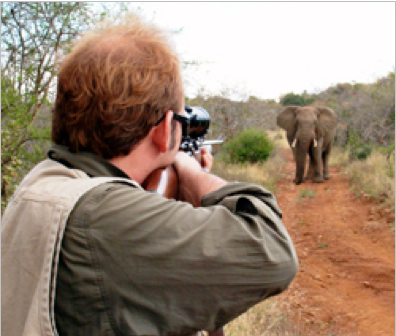|

I would urge all of you interested in wildlife conservation to read this post carefully as it directly concerns major decisions made on our behalves by our delegates in the EU.
Last September, the EU Wildlife Trade Regulation Scientific Review Group reversed a previous “negative” opinion for trophy hunting imports to now reflect a “positive” opinion. Zambian elephants are listed on the EU WTR as an Annex A species, meaning that trade should not only be carefully monitored, but also requires that the exporting state shows that commercial trade is “beneficial” to the conservation of the species. CITES lists Zambian elephants on their Appendix I and allows a maximum quota of 80 elephants to be exported. There is considerable evidence that Zambian elephant populations have greatly declined, that Zambian elephants are still subjected to considerable poaching, and that Zambia is a source of much illegal ivory.
Hence our surprise that the SRG made a U-turn on their previous decision.
We requested under a Freedom of Information regulation that the UK Joint Nature Conservation Committee provide us with all documents supplied by Zambia and considered by the SRG to reach this surprising decision. We received a number of documents, of primary importance these three:
1. A report published by Petri Viljoen, a South African consultant who conducted an aerial survey of the Lower Zambezi National Park and adjoining Game Management Areas in 2013. The report used two means of “survey” in the area called a Sample Block Count as well as a Systematic Reconnaissance Flight stratum. The block counts resulted in sightings of 4 elephants, and the flight reconnaissance turned up 461 elephants inside transects and 160 outside transects. These sightings resulted in an estimate of 1,795 elephants inside the National Park and 405 elephants outside. Such extrapolations are standard practice.
2. A letter from the Zambia Wildlife Authority (ZAWA) to the US Fish and Wildlife Service and the EU. This letter detailed elephant management plans, storage of recovered ivory, human-elephant conflict resolution plans, plans to reduce poaching, the establishment of an elephant conservation fund, some unsupported statements that that Zambian elephant population is increasing, the allocation of 36 elephants on a trophy hunting quota in 2015 and theoretical distribution of income to communities, an acknowledgement that between 2012 and 2014 381 elephants were poached, etc.
3. A letter from ZAWA dated 22 May 2015 to the EU Directorate General Environment. This letter stated the following:
“ For the past two years Zambia voluntarily suspended hunting to ensure off-take was sustainable for the elephant population, and after careful review, has determined that hunting will provide positive benefits for conservation, anti-poaching, and local communities. The uninformed SRG’s opinion [to pass a previous negative opinion]will negatively affect the hunting industry, which is the main source for revenue for conservation of wildlife in Zambia. It will also deprive communities of needed income that causes them to have positive views about elephant [sic] and decreases Human-Elephant Conflict … The Authority has already received complaints from certain hunting outfitters who have been awarded an elephant quota but whose clients have cancelled scheduled and paid up elephant hunts because of concerns the EU SRG’s decision will not allow them to import trophies into their countries … It will likely cause job losses to employees … Finally in excess of US$13,500 in direct revenues per elephant hunted is likely to be lost to the Authority as a result of cancellations … these are much needed operating budget funds… etc.”
The letter was signed by Kampamba A. Kombe, Acting Director General of ZAWA.
We and other concerned NGOs have asked the EU SRG to justify their decisions to reverse trophy import bans of a number of species, especially those like Zambian elephants on WTR Annex A and all African lions currently on Annex B. We do not accept that the information provided by Zambia as above is of a sufficiently rigorous scientific quality to have resulted in a reversal of the SRG negative opinion on Zambian elephant trophy hunting imports. We are of the opinion that the SRG was placed under political pressure to reverse their decision, which should not be acceptable.
The EU Scientific Review Group should only use scientific information to reach their decisions. A letter from the Acting DG of ZAWA mentioning possible economic consequences of such decisions should not have been placed before SRG members as it has nothing to do with science. If Zambia wants to moan about the effect that an import ban has on the trophy hunting industry and belabour their financial difficulties that should be brought up in a different forum as it is not science.
LionAid and our collaborative NGOs will continue to insist on better transparency from the EU SRG about how their decisions concerning wildlife trophy hunting imports are informed. We hope to work better with the SRG in the future to prevent such overt political pressure being applied to scientists. Instead, SRG members should only be guided by clear procedures well established within the EU Wildlife Trade Regulations.
Picture – hunting-safaris-africa.com
|




